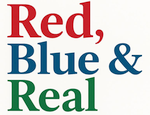## How Other Democracies Limit Money in Politics: Comprehensive Solutions That Prove Constitutional Reform Works
This companion piece to Part 4 of the *Money in Politics* series examines how Canada, Germany, and France successfully limit money’s political influence while maintaining strong democracies and competitive economies.
These countries prove that constitutional protection of free expression can coexist with meaningful limits on money in politics. Their experience shows that the American approach is a policy choice, not a constitutional necessity. For reform advocates, they provide both arguments and practical blueprints.
—
“`
“`
## Canada’s Comprehensive Approach
Canada demonstrates how free speech protections can align with robust campaign finance regulation. Its system integrates contribution caps, corporate bans, public funding, and strict enforcement.
### Constitutional Framework
The Canadian Supreme Court has upheld spending limits as necessary for democratic equality. In *Harper v. Canada* (2004), the Court ruled that electoral spending caps promote fair discourse and protect public confidence in elections.
### Strict Contribution Limits
Individuals may contribute $1,725 per year to a party and the same to candidates and local associations. These limits, indexed to inflation, keep influence accessible to ordinary citizens while preventing wealthy dominance.
### Corporate and Union Prohibition
Only individuals may contribute. Corporate and union donations are banned, separating economic power from democratic participation.
### Public Funding System
Political parties receive public resources based on both electoral performance and grassroots support. This sustains competition while reducing dependence on private donors.
### Short Campaign Periods
General election campaigns last 36–50 days, curbing total fundraising needs and allowing leaders to focus on governing.
### Free Media Access
Broadcasters must provide free airtime to qualified parties. Allocations are tied to electoral support, ensuring fair exposure for all viable voices.
### Robust Enforcement
Elections Canada operates as an independent body with authority to audit, investigate, and penalize violations. This independence ensures accountability beyond partisan control.
### Results
Canadian politics reflects public preferences more than donor interests. Trust in government is higher, corruption lower, and participation stronger than in the U.S. Canada remains a top-ranked economy for competitiveness and innovation — evidence that limiting political money strengthens free enterprise.
—
## Germany’s Balanced Framework
Germany balances public and private funding while regulating contributions and ensuring transparency.
### Constitutional Jurisprudence
The Constitutional Court distinguishes between individual expression and corporate spending. Restrictions on corporate contributions do not limit protected speech.
### Mixed Public–Private Funding
Parties receive substantial public funding based on electoral results, membership, and fundraising. This broadens participation and ensures resources across the spectrum.
### Regulated Contributions
Individual donations are capped, with mandatory disclosure above modest thresholds. Corporate contributions are limited and reported; foreign donations are prohibited.
### Free Media Time
All qualified parties receive television and radio airtime, allocated by electoral support. This ensures visibility without reliance on private money.
### Transparent Governance
Annual reports disclose all contributions, expenditures, and assets, enabling citizens to see who funds political activity.
### Results
Germany sustains one of the world’s strongest economies and export sectors while maintaining comprehensive campaign finance rules. Democratic equality and economic innovation reinforce each other.
—
## France’s Strict Limitations
France combines spending caps, public funding, and equal media access to tightly limit money’s role.
### Constitutional Framework
The Constitutional Council and European Court of Human Rights uphold campaign finance restrictions as compatible with free expression, recognizing that unchecked money undermines democratic equality.
### Comprehensive Spending Limits
Presidential campaigns are capped around €22 million, with much lower limits for legislative races. Caps cover all expenses and are enforced through audits and penalties.
### Short Campaign Periods
Campaigns operate within defined, brief windows — reducing costs and reinforcing fairness.
### Equal Media Access
All candidates receive equal broadcast time. Paid political advertising is banned, ensuring ideas rather than wealth dominate discourse.
### Public Funding
Candidates who meet thresholds receive significant state funding, reducing dependence on private donors.
### Corporate Contribution Ban
Corporate donations are prohibited; only individual contributions are allowed, subject to strict limits and disclosure.
### Results
France sustains a diversified, competitive economy while maintaining tight restrictions on money in politics. Democratic equality and strong markets coexist.
—
## Lessons for American Reform
These international models offer clear takeaways:
– **Free Speech Compatibility**: Other courts uphold both expression and spending limits, showing the U.S. approach is a choice, not a necessity.
– **Economic Competitiveness**: Strong market economies flourish under these systems. Limiting political money supports innovation and enterprise.
– **Implementation Pathways**: Multiple frameworks work in practice, offering tested blueprints.
– **Democratic Legitimacy**: Countries with strong regulations report higher trust, lower corruption, and stronger participation.
These democracies show what is possible, and why structural reform here matters for every other issue.
—
## Conclusion: Proving Constitutional Reform Works
Canada, Germany, and France demonstrate that free expression and limits on political money are not in conflict. Their experiences show how constitutional reform strengthens both democracy and markets.
For American advocates, these models provide constitutional grounding, tested mechanisms, and decades of practical evidence. They prove that societies can protect both free speech and democratic equality through well-designed frameworks.
This article is a companion to [*Constitutional Reform and Corporate Accountability*](https://dittany.com/constitutional-reform/) (Part 4 of the *Money in Politics* series).
For the full series, visit: [https://dittany.com/money-in-politics-series](https://dittany.com/money-in-politics-series)
—
## Sources and Bibliography
1. Centre for Constitutional Studies. “Harper v Canada (2004) – Third Party Election Advertising limits in Federal Election Campaigns.” University of Alberta, 2012. https://www.constitutionalstudies.ca/2012/07/harper-v-canada-2004-third-party-election-advertising-limits-in-federal-election-campaigns/
2. *Harper v. Canada (Attorney General)*, [2004] 1 S.C.R. 827 (Supreme Court of Canada). https://scc-csc.lexum.com/scc-csc/scc-csc/en/item/2167/index.do
3. Elections Canada. “Political Financing: 2023 Annual Report.” Ottawa: Elections Canada, March 2024. https://www.elections.ca/content.aspx?section=pol&dir=can&document=index&lang=e
4. Elections Canada. “Calendar of activities for a typical election period.” Elections.ca, 2024. https://www.elections.ca/content.aspx?section=vot&dir=bkg&document=ec90795&lang=e
5. German Federal Returning Officer. “Party Finance Report.” Berlin: Federal Returning Officer, 2023. https://www.bundeswahlleiter.de/en/
6. Arkin, Alexandra. “Toward a level playing field: French campaign finance laws.” *Michigan State University International Law Review*, March 11, 2018. https://www.msuilr.org/msuilr-legalforum-blogs/2018/3/1/toward-a-level-playing-field-french-campaign-finance-laws
